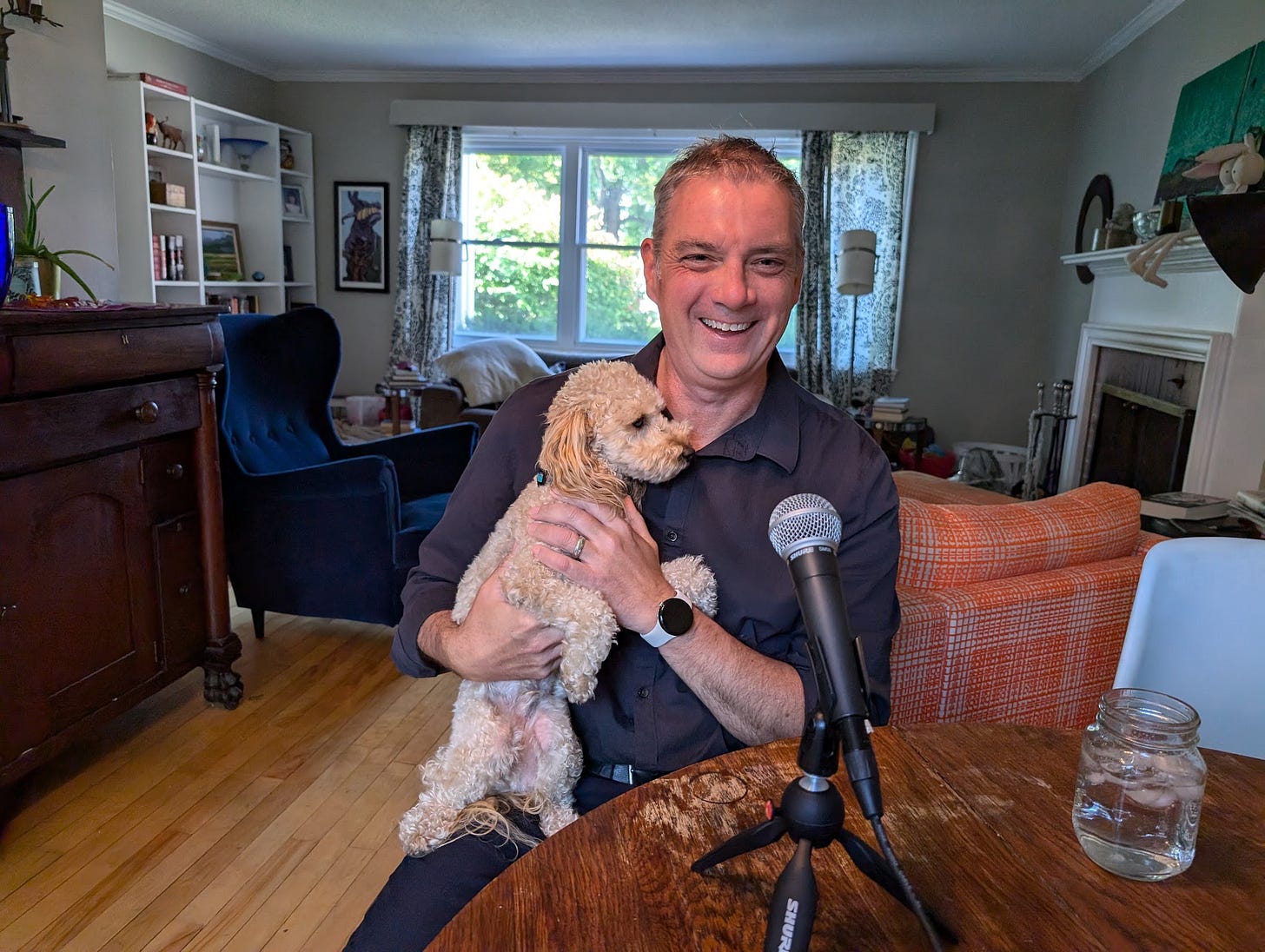At the end of the summer I shoved an assortment of recording equipment into the back of my car and drove a block to Tim Cook’s house. Cook is the Chief Historian and Director of Research at the Canadian War Museum. He’s the author of 20 books, including a bunch of bestsellers and award winners, which makes him one of the leading public historians in the country. He’s also my neighbour in Ottawa, so rather than talk by Zoom or book a fancy studio, we decided to chat in his living room.
Our topic, or jumping-off point, was Cook’s latest book, The Good Allies: How Canada and the United States Fought Together to Defeat Fascism During the Second World War. Another big seller. The title might sound like overreach, as though Hitler was doing the bunker scene from Downfall and his generals were trying to figure out how to break it to him that not only were the Americans coming, the Canadians were too. No, Cook’s point was subtler, and he ends up telling a chapter in the war that is almost always skipped over: that building up North America’s industrial capacity, and safeguarding it against occasional raids from the Germans and Japanese on both coasts, was unglamorous work, but it was key to the success of the Allied war machine, and at its heart was the relationship between Mackenzie King and Franklin Roosevelt.
We are reminded that King was a weird dude. The night before Britain declared war on Germany, King went to bed a happy man because a visit with the spirits had convinced him that Hitler had been assassinated. He was cross when his sources turned out to be unreliable. He was also deeply suspicious of Americans, and was not at all sure that FDR would pass up a chance to gobble Canada up amid the chaos of war. But King was also a thoughtful nationalist, and he knew that the best way to defend Canada was to turn into an ally that couldn’t be written off as negligible. That King, who much preferred London to Washington, presided over a substantial consolidation of Canada’s continental relationship with the US, is one of history’s quieter jokes, and this book’s.
There are also obvious parallels to the present day, when Canada’s North Atlantic allies wonder whether we’ll step up, and the US embassy on Sussex Drive is orders of magnitude more preoccupied with Canada’s contribution to NORAD modernization than the usual run of Bytown chatter is. Is this a book about responsibility as a guarantor of Canadian sovereignty? You bet it is, Cook says.
With this episode, The Paul Wells Show introduces a new season, and goes through a few changes under the hood. After two years producing this podcast under the auspices of another university, I’m delighted to become the Max Bell Foundation Senior Fellow at McGill University.
What that means is that I’ll be making substantially the same podcast I’ve been making: in-depth conversations with leaders, thinkers and creators who are tackling some of the toughest challenges of our time. My main academic home now — a fertile intellectual environment where I can talk about events and ideas with experts and students — will be the Max Bell School of Public Policy at McGill University. The generous support of Calgary’s Max Bell Foundation, as the name implies, makes a lot of what happens at McGill’s policy school possible. Now it will also help me in my work.
A few times over the season, my own writing, analysis and voice will anchor episodes of the show, as I give ambitious public talks on important policy challenges that will then become the basis of podcast episodes. I’ll also have a year-end show in Ottawa like the one we had last year, but bigger. I’ll share details, and tell you how to get tickets, soon.
In all of this, as before since this podcast began, I choose the topics and the guests, I write the questions. The podcast is built on a very different model from the Substack newsletter, but both ensure I have a level of independence that too many of my colleagues don’t have. I’ll work hard to make good use of this opportunity.
Thanks for listening. The 57 episodes in the podcast archive is always at your disposal, if you get hungry for more and don’t want to wait for new episodes.
You can listen to this episode on Apple Podcasts and a bunch of other platforms via the “Listen On” button that you can see at the top of this post when you view it on your desktop. You can download any episode to listen to it later, via the same “Listen On” button. If you listen on a podcast platform, hit “Like” and “Subscribe” buttons, and leave a good review, to help spread the word.
You can read a (machine-generated) transcript of this week’s episode via the "Transcript” button at the top of this page when you view it on your desktop browser.
I am grateful to be the Max Bell Foundation Senior Fellow at McGill University, the principal patron of this podcast. Antica Productions turns these interviews into a podcast every week. Kevin Breit wrote and performed the theme music. Andy Milne plays it on piano at the end of each episode. Thanks to all of them and to you. Please tell your friends to subscribe to The Paul Wells Show on their favourite podcast app, or here on the newsletter.














Share this post